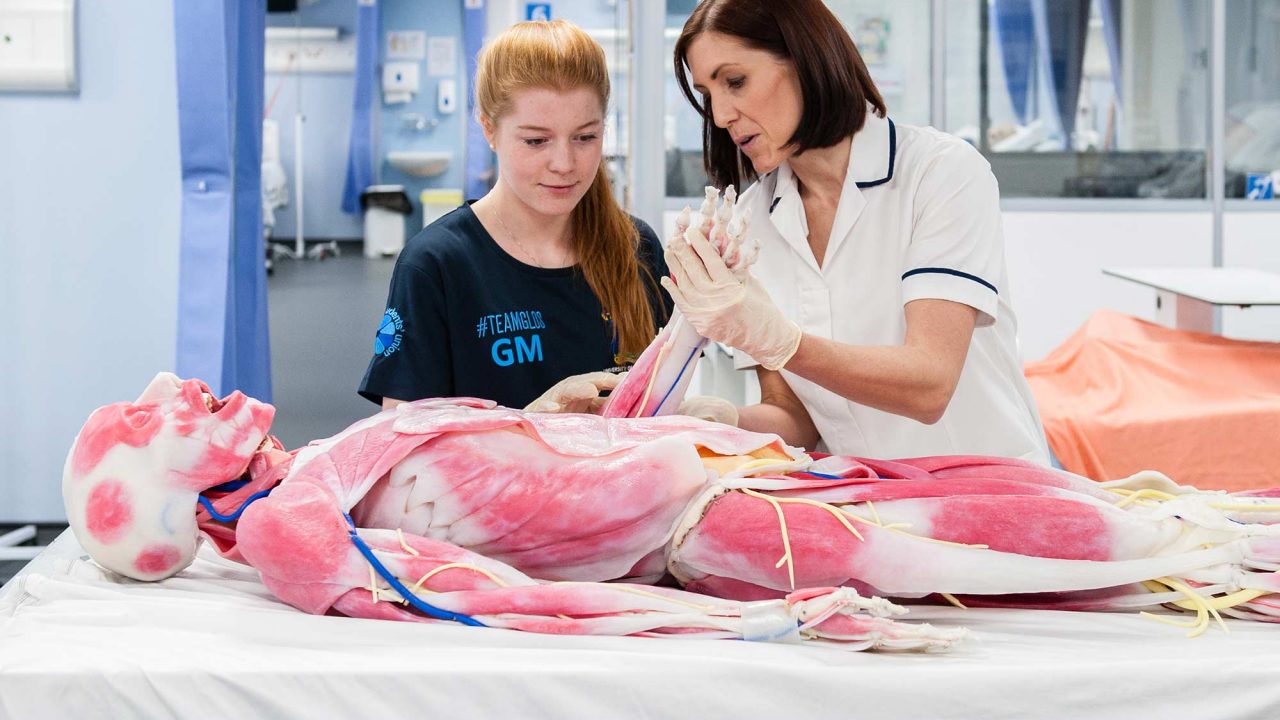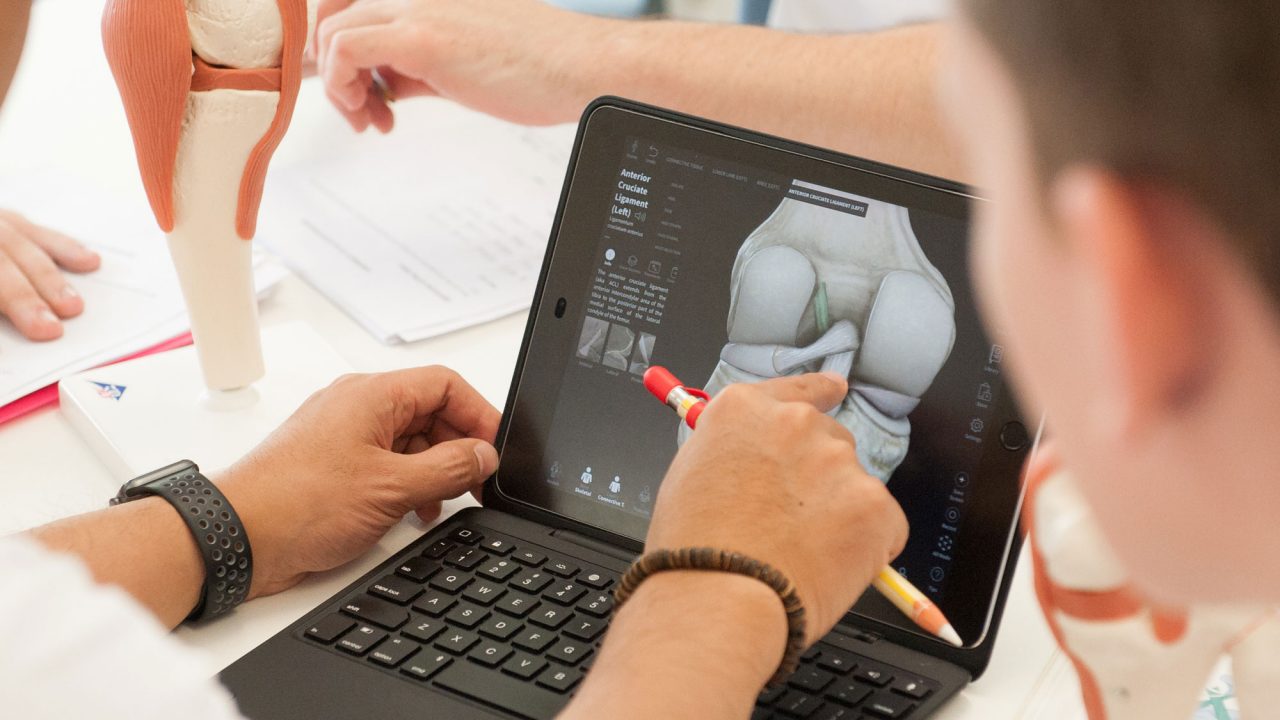Physiotherapy is a science-based healthcare profession where practitioners use their skills to improve and manage a wide range of medical conditions. Physiotherapists help people affected by illness, injury or disability through movement and exercise, manual therapy, education and advice.
Our physiotherapy courses are ranked 1st in the UK for graduate prospects by the Complete University Guide 2026.
Students applying for this course may be eligible for the NHS Learning Support Fund, which provides a non-repayable training grant of £5,000 per academic year.
You’ll take a ‘whole person’ approach to health – fully involving patients in their own care through education, awareness and empowerment. You’ll study the core subjects of anatomy, physiology, biomechanics and pathology in order to apply these to clinical situations. Your studies will include clinical placements in a variety of NHS and private settings to give you a diverse experience to prepare for your future career as a Physiotherapist.
The course is approved by the Chartered Society of Physiotherapy (CSP) and the Health and Care Professions Council (HCPC). On completion of the course you will be eligible to apply to the HCPC to practice as a registered Physiotherapist.
Study style
Your academic year will be split into blocks of taught delivery and blocks of placement activity. Teaching and placement activity will run Monday to Friday throughout the academic year – and may include completing placements in other counties within the UK. On campus you’ll use state-of-the-art facilities including treatment rooms, rehabilitation space, a hospital ward, a skills laboratory, a biomechanics laboratory, three physiology laboratories, a strength and conditioning suite, a fitness suite and a simulated ‘home’ environment.
Methods of teaching and learning include:
- lectures & seminars
- group work & discussions
- tutorials
- skills practice in clinical skills laboratory
- clinical placements at levels 4, 5 and 6
- reflective logs
- case based discussions
- assessment of competencies
- self-directed study.





; ?>)